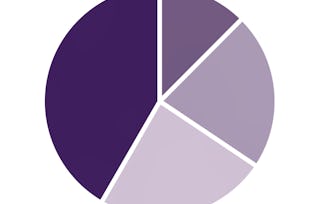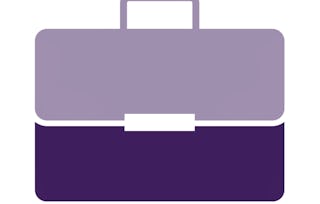This course provides the essential mathematics required to succeed in the finance and economics related modules of the Global MBA, including equations, functions, derivatives, and matrices. You can test your understanding with quizzes and worksheets, while more advanced content will be available if you want to push yourself.

Quantitative Foundations for International Business
5 days left! Gain next-level skills with Coursera Plus for $199 (regularly $399). Save now.

Quantitative Foundations for International Business
This course is part of International Business Essentials Specialization

Instructor: George Kapetanios
14,753 already enrolled
Included with
(424 reviews)
Skills you'll gain
Details to know

Add to your LinkedIn profile
10 assignments
See how employees at top companies are mastering in-demand skills

Build your subject-matter expertise
- Learn new concepts from industry experts
- Gain a foundational understanding of a subject or tool
- Develop job-relevant skills with hands-on projects
- Earn a shareable career certificate

There are 4 modules in this course
Although financial models are theoretical frameworks, we often use mathematical tools to work with these models. Mathematical models usually consist of a set of equations, which are designed to describe the structure of the model, and whose solution determines the importance of variables. This week, we will look at equations, including the basic terminology, and the rules for solving equations requiring more than one operation.
What's included
10 videos2 readings3 assignments
Functions are important in every area of pure and applied mathematics, including mathematics applied to economics, finance and business. For example, the language of economic analysis is full of terms like demand and supply functions, cost functions, production functions, consumption functions, and so on. This week, we will present a discussion of functions of one real variable, illustrated by some economic examples. Remember- one variable is a function of another if the first variable depends upon the second.
What's included
20 videos2 assignments
An important topic in many scientific disciplines- including economics- is the study of how quickly quantities change. The concept used to describe the rate of change of a function is known as the derivative. In this lecture, we will define the derivative of a function, and share some of the important rules for calculating it.
What's included
21 videos2 assignments
The analysis and even the comprehension of systems of linear equations is much easier when we use key mathematic concepts such as matrices, vectors, and determinants. This week, we’ll introduce these concepts and explain their application to economic models
What's included
16 videos3 assignments
Earn a career certificate
Add this credential to your LinkedIn profile, resume, or CV. Share it on social media and in your performance review.
Instructor

Offered by
Explore more from Business Essentials
 Status: Free Trial
Status: Free TrialUniversity of London
 Status: Free Trial
Status: Free TrialUniversity of London
 Status: Free Trial
Status: Free TrialUniversity of London
 Status: Free Trial
Status: Free TrialUniversity of London
Why people choose Coursera for their career

Felipe M.

Jennifer J.

Larry W.

Chaitanya A.
Learner reviews
- 5 stars
58.49%
- 4 stars
18.16%
- 3 stars
8.96%
- 2 stars
5.89%
- 1 star
8.49%
Showing 3 of 424
Reviewed on Nov 19, 2024
The course explains the basic methods of decrypting the constraints in using resources of business and elementary mathematical functions to solve the problems.
Reviewed on May 18, 2019
Good Course, but I would want the examples to stay on screen as they are being presented.
Reviewed on Nov 27, 2021
it was great opportunity to join this class and I have learned a lot and achieved what I was looking for thanks for great time regards

Open new doors with Coursera Plus
Unlimited access to 10,000+ world-class courses, hands-on projects, and job-ready certificate programs - all included in your subscription
Advance your career with an online degree
Earn a degree from world-class universities - 100% online
Join over 3,400 global companies that choose Coursera for Business
Upskill your employees to excel in the digital economy
Frequently asked questions
To access the course materials, assignments and to earn a Certificate, you will need to purchase the Certificate experience when you enroll in a course. You can try a Free Trial instead, or apply for Financial Aid. The course may offer 'Full Course, No Certificate' instead. This option lets you see all course materials, submit required assessments, and get a final grade. This also means that you will not be able to purchase a Certificate experience.
When you enroll in the course, you get access to all of the courses in the Specialization, and you earn a certificate when you complete the work. Your electronic Certificate will be added to your Accomplishments page - from there, you can print your Certificate or add it to your LinkedIn profile.
Yes. In select learning programs, you can apply for financial aid or a scholarship if you can’t afford the enrollment fee. If fin aid or scholarship is available for your learning program selection, you’ll find a link to apply on the description page.
More questions
Financial aid available,

